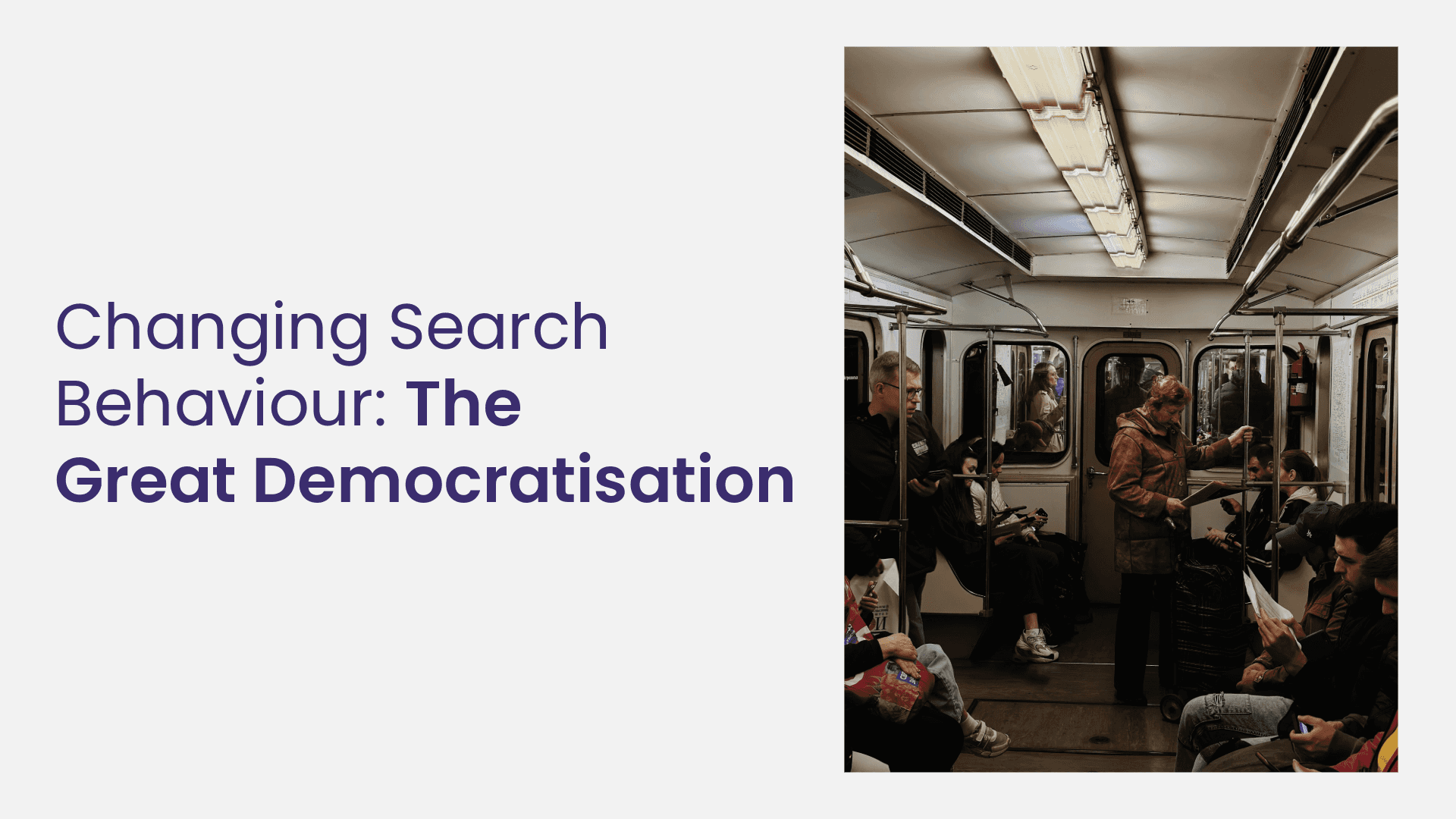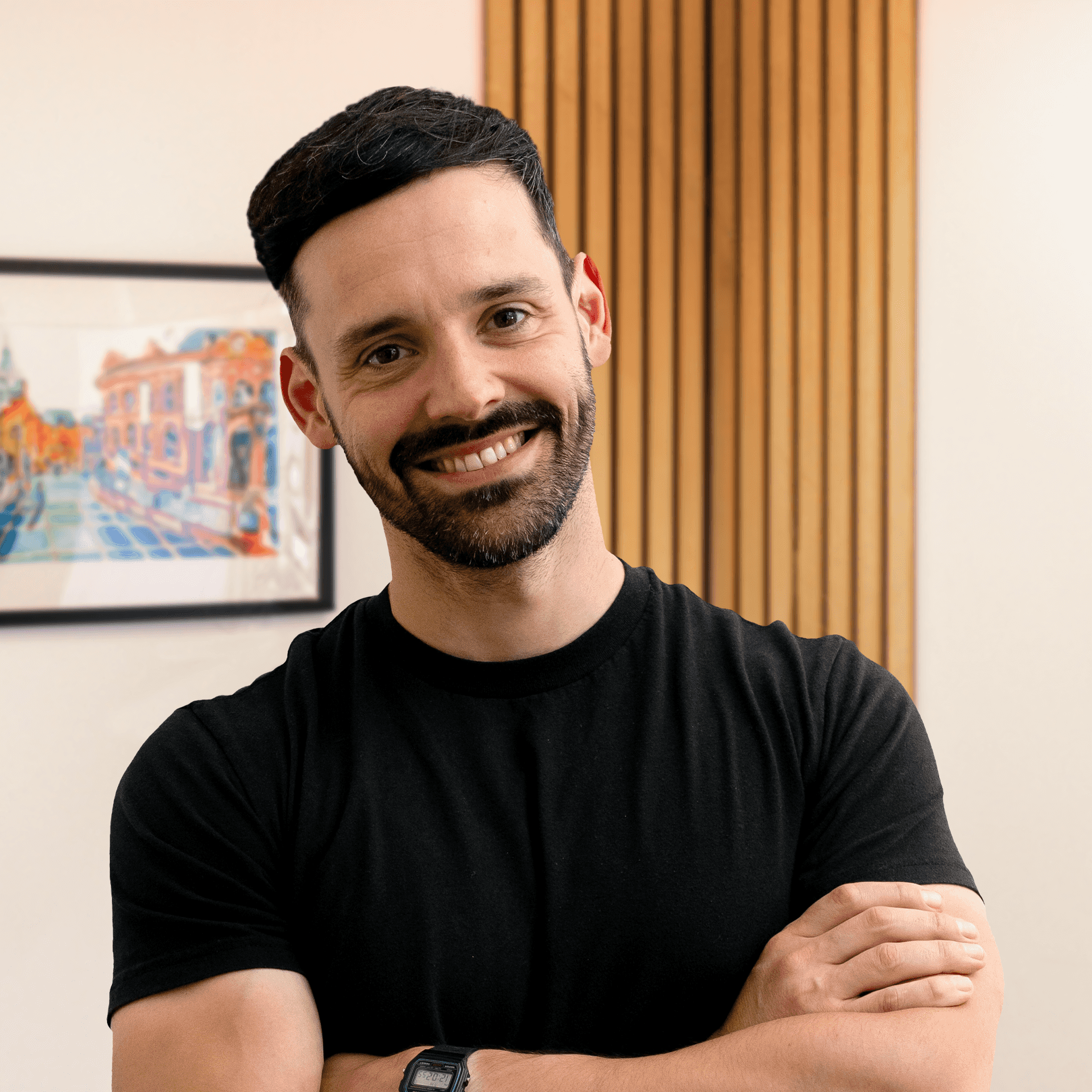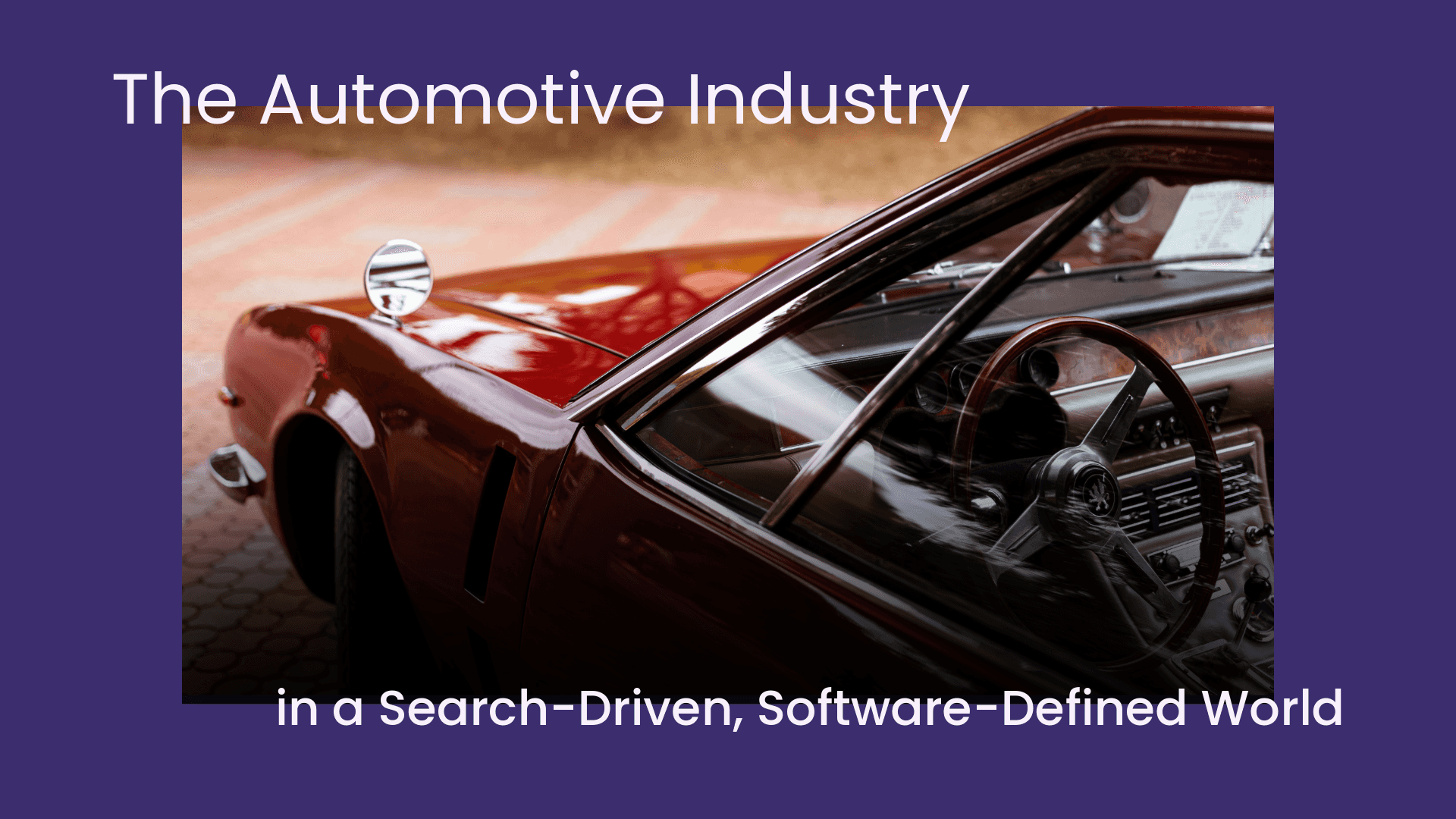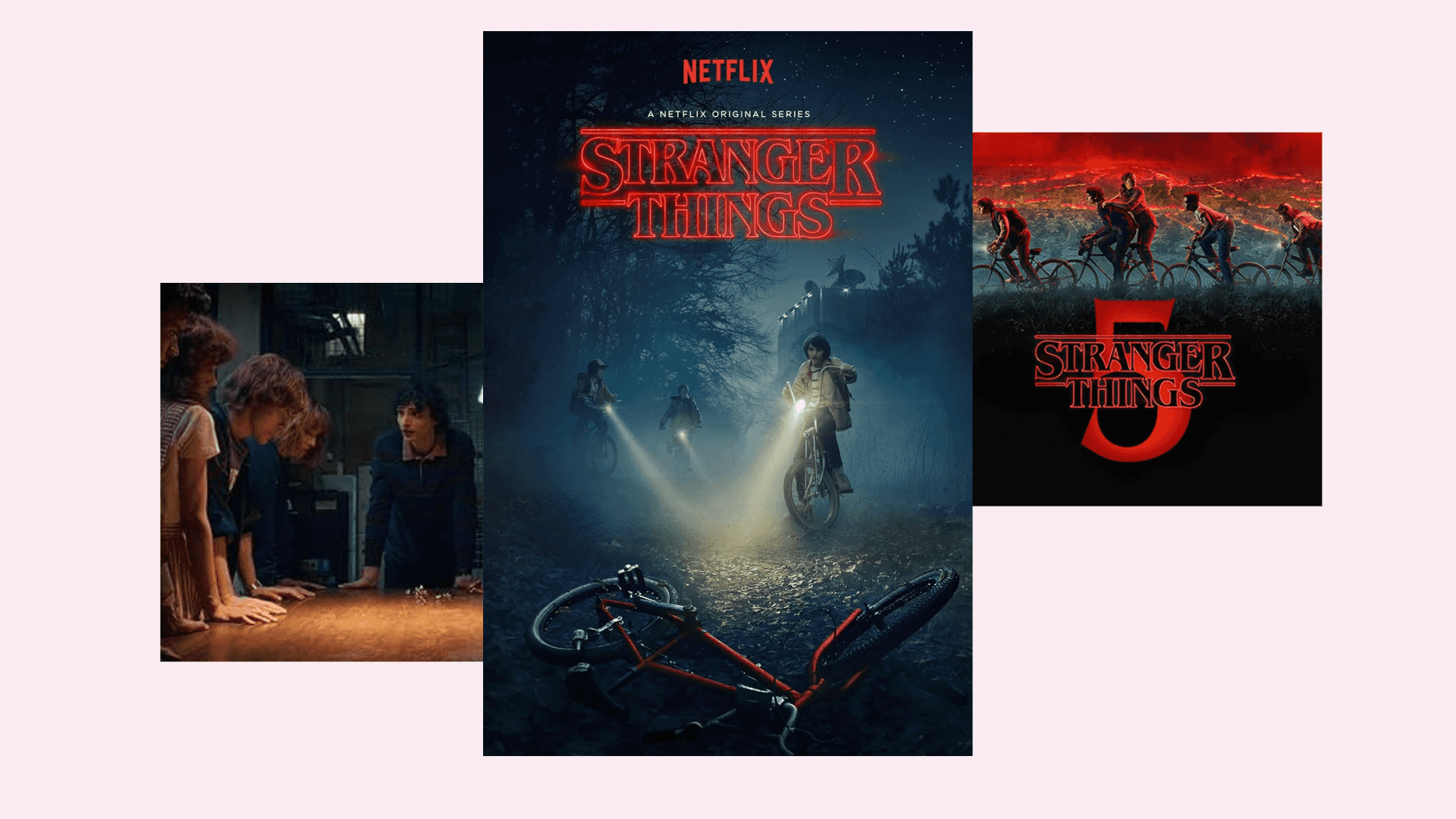
Marketing Predictions for 2024/25: Insights from 15+ Years of Experience
Written by Lee
What have the last 12 months looked like for digital agencies?
As we approach the end of the financial year at Flaunt, Lee and Dan outline the key points that have stood out this year, from the sales cycle timeline, AI, agency value and budgets and share their marketing predictions for 2024/25.
Will AI become a commodity? Why have we seen a difference in sales cycle times following our client growth? Will agencies become more confident to talk about the value and expectations of their work? What are our predictions for the digital marketing space over the next 12 months?
This episode explores notable topics that have been at play within the last 12 months, with some, “this or that,” to round up the pod.
Listen on Spotify or Apple Podcasts or subscribe to our YouTube channel for weekly episodes.
See below for a full transcription of episode 57.
Transcript
Dan
So I want to speak to you on this episode about, from a CEO/founder’s point of view, various different topics, both internally and externally. But let’s start sort of, generally speaking, externally. So we are approaching year-end, financial year end for us.
Kicking over into a new financial year, it’s always a good place to take stock, I guess, and look backward as well as forward looking.
So from your perceptions, your experience of the last 12 months, let’s go externally and what we’ve all encountered and had to navigate through. What are your overriding feelings? Where does your mind go immediately?
If I was to say to you… Lee, last 12 months, how do you reflect on it?
Lee
Oh, there’s quite a few places that immediately jumped to my mind: AI is prevalent, sales cycles prevalent, budgets prevalent.
All of these things, of all considerations I think they would probably be my top three.
Dan
Yeah. I would say let’s do each. Should we do each one?
Lee
Yeah.
Dan
Let’s come to AI – not first. So first, let’s go to sales cycles.
Lee
Well, I think you’re on the frontline for this one. I think sales cycles in my mind, if I look at 2019 pre-pandemic – sick of talking about it, but it’s relevant, then I would say the sales cycle was about 12 weeks-ish.
Dan
Yeah.
Lee
Start to finish.
Dan
Yeah.
Lee
I think that it’s currently sat at about six months.
Dan
Yeah, I would say so.
Lee
It’s doubled since then, which is understandable but makes planning and forecasting quite difficult. And what has happened I think, is if you’ve got a process in place, a persistent sales process where you’re actively generating new work, what seems to happen is it queues up, so you’ll be working on multiple different opportunities.
The sales cycle being that length of time, means that it all comes at once. So you’ll have cycles of nothing for six months, and then you’ll get four or five new clients, all landing within the same four-week period, which from a resource perspective makes it really difficult to plan. I don’t know what the rest of the market looks like, but I think fast forward to now, I think that’s coming down. I would say it’s probably around about four months at the moment.
Dan
Yeah, definitely. I would agree with that. It hasn’t dropped down to what you said pre.
I’ll also give a little bit of one of the many reasons why I think- and we can evidence this, why I think this is the case – is the number of people involved.
Stakeholders at the decision stage and pre-decision stage and those stakeholder groups looking different. So, what I mean by that is: we might pitch to a group of stakeholders, but ultimately that snowballs at the decision stage, so beyond the pitch to a couple more people and you do your best to try and bring as many people into the room so that you can eliminate some of these, “delays,” let’s call them. You can do your best, but ultimately there might be people – I mean, we’ve got an opportunity, I think at the moment or a very recent one at least, where it almost specifically said, “We have investors,” and pretty much said that we won’t get to meet them, you’ve got to go through this/that sort of rigmarole with us if you are our choice, then it goes through almost like round two with the investors.
I’m presuming that would just be a, “get it over the line,” job rather than a round two official, you know, re-pitching sort of scenario. But that said, there’s more and more of that happening. I’ve seen over the last 18, 12 months, certainly 18 months, maybe even longer.
Stakeholder groups and decision-making committees have gotten bigger.
Lee
Yeah, I would add that the interrogation around terms and contracts has increased off the back of it all as well. I think that is probably tied into what you’re saying there about the second round of stakeholders that then get involved, when before there was less forensic interrogation of the terms.
Now, it seems that at the very least, it’s queried in detail. Whereas before, I’m not saying that it wasn’t paid attention to, but I think the resistance was much less when it comes to contractually.
Dan
More scrutiny, maybe even more eyes. So the contracting stage has become i.e. negotiations and fees and all that, has happened. But you’re at a contract stage – that has become its own stage.
Lee
I also think that upon reflection, there’s probably a little bit of the fact that we’ve shifted in terms of the scale that we’re working with. So, the clients we’re now working with have legal teams, in-house and procurement teams and stuff like that, whereas I think probably in 2019, we were in a position where that didn’t really exist too much.
Dan
Yeah, I mean, I ran our figures because, the reason why we’re having this conversation approaching year end, getting some of our figures and taking stock. I mean, I do that every day, but, taking stock more officially on a sort of last 11 months, ten months period. Just yesterday, the value of an opportunity was in this last say, just call it 12 months versus 12 months before versus 12 months before, it’s just come on leaps and bounds.
So yeah, we are opening ourselves up to longer sales cycles, just by virtue of the size of resource on the client side to be able to scrutinise these things. And ultimately, they’re paid to do that job, and that’s their career path to being in legal and to be in procurement. So yeah, you naturally open yourselves up to those sorts of things.
But it’s interesting because I agree with you. It’s interesting that you said maybe at its peak it might have been a six-month job looking at sales, you know, lead time sales cycle from maybe first conversation to close and hopefully starting that work, and that you reckon it might have dropped down slightly to maybe four months.
Lee
I think about 16 weeks at the moment would be about average.
Dan
I think so as well, and interestingly when you’re saying about don’t know, well, we do know what’s happening out in the market. I mean, with what I do, I’m connected with a lot of other salespeople and it’s the same.
It’s the same rhetoric. It’s the same narrative that they’re discussing and have been discussing for probably longer than 12 months, actually. I think it would be really silly of us to not discuss some of the forces that are at play that everyone is having to navigate, and one of the massive ones is, I can’t quite believe this.
We have officially been in the cost of living crisis for nearly three years, between two and three years. It’s just like, that’s nuts, so obviously there are forces there that are at play. So it’s that, you know, when we’re talking about maybe more scrutiny on being more diligent and more scrutiny on things like a contract, for example, size of client and resource.
But, I also think there’s external factors, regardless of your size as a potential client, as us, you know, working with potential suppliers, we need to be more, as I said, diligent and vigilant with the sort of research and the things that we’re committing to ourselves, and our clients are doing exactly the same.
Lee
It’s interesting. I was thinking about this yesterday, in the context of what you’re saying, I think that agency services, from a marketing perspective, have been wildly underpriced for quite a long time versus the returns that they generate.
I think we’re moving into a period where the value that agencies are capable of delivering is being realized. What that means off the back of like everything else, increasing cost of living wise, is that agencies are starting to charge more and starting to be confident charging more. And I think that’s been a long time coming to be honest.
Dan
Do you think that’s driving therefore more scrutiny?
Lee
I think so, I don’t know what the comparison would be, but when you’re making a big purchase – like let’s say you’re buying a house. You go through a lot to make sure that you have as much confidence as you possibly can in what you’re buying.
And I think when you get to the scale where you’re talking hundreds of thousands of pounds more, it’s like, right, I want to be confident that this is going to be used to the best of its capability.
Dan
Yeah. And as we’ve talked about so many times before, and I personally just don’t see it, we’ll talk about AI, this might be a lovely segue.
There’s just more and more options for clients nowadays. And I was going to say more and more agencies, but I don’t mean that. One of our biggest sort of potential competitors isn’t always just a like-for-like agency, is it? As we know it can be in-housing. It can be, you know, there are various different options for what a client thinks the value that they are looking for from an agency, it can come in different forms in their mind in terms of those options.
So that’s popping up all the time, and I think with AI as well, there’s going to be more and more people who are creating AI-focused and centered businesses, be it one man sort of businesses all the way through to, you know, fully-fledged agencies in the traditional agency model is what I mean by that. so there’s more competition out there as well.
Competition, as I said, might be a like for like, it might be more left of field and a little bit lesser thought of but we mentioned AI there and that was one of the three things that you’ve identified in terms of your last 12 months reflection. So, what have you seen from AI in the last 12 months? Not only what have you seen, what have you seen, therefore, what do you think is coming, if anything, but also sort of more critically, where are we in that journey and what’s not only your opinion but experience of it and where you see us not only adopting because we’ve already adopted AI, but how does our journey going forward as an agency and even you personally with AI, look, given what you’ve seen for the last 12 months and what your forecasting to see?
This is off the back of the the Apple announcements this week, for example,
Lee
I’m always interested when anything affects time. One of the best examples that I can draw on is Uber.
Uber when it first launched in 2012 or whenever it was, was positioned as a taxi business, and everyone except for a small group of people, including the founders of Uber, were aware that they were selling time, not a service.
It took a while for everyone else, I think, to catch up, including investors. But that’s always interesting to me. And I think we’ve gone through the last ten years having information accessible, at our fingertips at speed, however, it’s still been a – not an effort, but it’s still been positioned as providing value, whereas I think AI is commoditising information.
This means that services like marketing services are, becoming scrutinized because the information around what people are buying is more prevalent and also, when you throw AI in the mix, there’s so much documented around how it can improve efficiency in marketing that I think it can down value the specialists that then have to execute on it.
Where I think brands that are using external agencies need to focus is: when it’s done right, this is going to allow for you to get more value. It’s not going to replace the people that you need to execute a good strategy, but it will allow you to run better data.
It will allow you to execute tasks quicker. It will allow the people that have got it accessible to them to deliver more for the money that you’re giving them. So, when maybe 12 months ago it first sort of broke publicly and people became aware of it, everybody was like, “it’s going to replace – we’re off everybody.”
It’s not. It’s like the shift in like, we’ve been talking about for years now. The shift in user journey to social to the amount, literally the amount of touchpoints now for brands to get an end result is exponentially higher than what it was five, six years ago. So it’s the same concept for me with AI – shifting to a search strategy almost felt like a necessity for us to do because it was the right thing for the client.
AI is the same. I’ve been using ChatGPT since 2020 – that’s four years ago now. When you think of the speed in which AI has moved just in the last 12 months and the explosion that’s happened, the best use case that I still come to is if it can improve efficiency, do it and use it.
And that’s the approach that we’ve taken, and that’s the approach that I think we’ll continue to take.
Dan
Do you think clients are looking for an agency who can ally with what AI does from a time, like you almost said, almost like, hey, I’m going to dumb it right down, but to like, almost like the manual tasks that might be included in their account, managing their account, growing their account?
I’m thinking from a client-side: do you think they’re looking for agencies to be able to ally with it, use it, interpret it? That AI right now can’t do, which is the, as I said, the interpretation of what AI, for example, is able to do from a data perspective to then do something with it, i.e creative, for example, campaign creative that it’s almost like AI with your agency sat on top of it, and that’s where the value of the agency, through specialisms and people and creativity and strategic thinking, that’s the layer of agency value that sits on top of what’s maybe behind the scenes, which is AI. As I said, it’s almost like a partnership is where I’m thinking of i.e. a client is going to turn round to us and, you know when we’ve sort of been put on the spot more and more.
It’s again, it’s in line with the scrutiny in terms of like, where are you spending your time? I don’t think a client wants their agency to turn around and effectively give them answers that they believe AI could be doing for the agency, so therefore, it’s almost like I said that sort of mundane, more manual sort of data-focused stuff – analysis, for example. They almost want to see that that’s ticked off, that’s looked after by AI, because on top of that is the interpretation of that.
It’s the doing the, “so what?”, answering the, “so what?” that comes at an agency sort of personal specialisms, creativity, strategic deployment level, do you feel like that’s what brands will and are maybe even currently looking for – that an agency’s working with AI obviously to the best of their abilities for ultimately creative strategic thinking of whatever AI is spitting out for that agency?
Lee
Yeah. And I think it enhances intelligence when it comes to a marketing strategy. I think brands should expect the agencies that are doing it the right way will be in a position to advise on process client-side as well and offer efficiencies in what they’re doing.
So if you’ve got an in-house team of marketers for example, and you’re working with an agency and the agency recommends a process or an enhanced process using AI that that isn’t already in place, then great.
I think the best way I can think about framing it, is if you think about AI as a tactic in the many strings to a marketers bow, and you look at SEO, for example, there are so many things within SEO that is done, and the specialists understand and interpret what needs to be done to make a change that’s going to positively influence and impact results.
It’s the same concept with AI. It’s just another thing that needs to be taken advantage of that enhances speed. But it doesn’t replace…not yet anyway.
Dan
That’s what I was saying about like current state of play, if you think about it as well. If every agency defaulted to effectively outsourcing to AI, all brands that they’re working for would feel very much the same.
So right now as well, you know, there’s a competitive angle to look at what your competitors are doing. If they’re not wholeheartedly invested in, you know, basically outsourcing their strategy to AI campaigns, execution, all that sort of stuff like wholeheartedly to AI, then, you know, you’ve got to be wary of what your competitors are doing. And AI yeah, can sort of help with that from a research perspective.
But you’re still going to need the interpretation of that and the breaking through the noise, all that sort of stuff that you’re looking for from a marketing perspective,
Lee
But marketers will ruin it. They’ll ruin AI for brands because they will commoditize it.
So, take AI influencers for example, as a good example.
There are probably a handful – ten case study AI influencers at the moment.
They’re generating thousands, hundreds of thousands of pounds off the back of being a fabricated influencer in a certain space.
And then brands are using them and it’s working. It’s fine. What’s going to happen is everybody’s probably going to do that. There will be agencies that are created that just do that, and then AI influencers will become so popular, so prevalent that it’s a commodity.
So brands will then come full circle and want to work with human iInfluencers, and then that’s full circle and that’s what will happen. I think it’s going to be a really interesting time to watch everyone try and figure that out.
Dan
Yeah, it’s quite scary that. But yeah, AI.
Your third thing was budgets, was it?
Lee
Yeah.
Dan
Talk to me about that then, last 12 months, how do you reflect on specifically client budgets and what have you seen from budgets?
Lee
Well, I think we’ve touched on it slightly in the sales cycle question, didn’t we, whereby brands and clients are looking at everything in more detail. Budgets are obviously something that get scrutinized, but I think the level of detail and the amount of eyes that get put on it, is increasing.
The expectation on returns is increasing. It’s just how it is. I think the comfort, the one positive that I would say in the context of that question, would be that the comfort level of talking about it openly is increasing, so even on new business it’s like budget – it’s no longer a taboo.
I think confidence, like what I was saying about agency services being underpriced, the confidence from agencies to then say, “well, that’s probably not enough to do what you’re looking to do,” has increased massively. And I think the education, which kind of gives me confidence around the pitch process as well.
I know that’s going off on a tangent, but I think the comfort of talking about budgets, agencies communicating an expectation for the budget that brands have available is probably going to, in another – I’m going to say pessimistically, two years – mean that the agency comfort level and saying, “it’s going to cost is eight grand to pitch. have you got eight grand?” will probably increase.
That stigma around pitching in general will probably change slightly, I’m foreseeing. But I think that ties into budget conversations and I think that comfort level from agencies has increased because it’s become the norm for budgets to get questioned and scrutinized, which has meant that agencies are probably like – it’s rubbing them up the wrong way a little bit, so the come back is, they’re almost justifying it before the question is asked…and I think that whole thing is quite a good exercise to be honest.
Dan
It’s certainly played out in evidence of it. And whilst we’re on budgets, I think we need to shout out the most recent example of our forecasting process, so a big shout out to Daniel, in particular, our technical SEO team, in particular, alongside our dev team, which is constantly improving.
So we’ve just had a recent QBR with an e-com client. I mean, the sessions forecast versus actuals was ridiculous, but in particular, the revenue was forecasted at 0.2% out to the actuals and sessions will have been very, very close.
I didn’t actually pull that because I’m always thinking about revenue rather than traffic and sessions for my conversations, but to have seen, you know, this is a constantly evolving – firstly, it’s a need to actually be able to demonstrate this and navigate these conversations with our clients, potential and existing, in terms of clients, and also obviously it’s around what we just talked about, about budgets, and being able to show a return and forecast to return as well.
To be able to turn round with the vast amount of work that constantly goes into our forecasting process, to be able to turn around with that accuracy against actuals is phenomenal.
I shared it on LinkedIn. I got some people specifically in that space, which is exactly what I wanted to do, really resonated with them, like that’s that almost illegally accurate. Which is amazing isn’t it – like that’s 0.2%.
Lee
Well, it’s been nine years in the making, getting to the point that we’re at with it.
Dan
And it doesn’t stop either.
Lee
No, it’s constantly evolving but it is, well it gives you the confidence, I mean that that forecast was done in November last year I believe.
May’s sessions and revenue is what we’re talking about, and that the revenue was within, there was £168 difference in what we forecasted versus what was delivered and there was sub a thousand sessions difference in the sessions that were proposed versus what was actually delivered and I think that as an example of confidence in a process is pretty good.
Dan
Yeah. And it’s like we’ve said, more of these conversations are going a bit deeper aren’t they with budgets, returns, forecasting, and all that and we recognize that and understand that. We understand the powers that are forcing people’s hands into that. All we can do is, as best as we can, navigate those with as much accuracy and honesty.
As I said, it’s so refreshing and it’s so validating to turn round and be able to put those forecasting accuracies after actuals in front of that client as well as, and to be honest, give ourselves a pat on the back because that’s yeah, that’s amazing.
I mean, we’re not privy to other people’s forecasting methods, but you got to be confident in your own and that’s certainly come on leaps and bounds. So yeah, it helps with those budgeting conversations.
I think that’s the three reflections, aren’t they? Going forward, is there anything on your mind, on your radar for the next…I mean, 12 months is a long time isn’t it – to star thinking about it.
Lee
12 months is like five years now.
Dan
Exactly. Bloody hell, so is there anything apart from those things that you talked about that are particularly on your radar of interest concerning anything?
Lee
I think the last well, obviously, like you mentioned, we’re in the run-up to the end of our financial year. So the last three months have been spent looking deeply into where we’re at performance-wise, where we’re going to be, where we want to be.
I think the area of focus for us at the moment is operational efficiency. It’s been something that we’ve worked really hard on in the last 12 months. We’ve spent the last 12 months, I think we sort of hired the head of a sales curve that is providing a really fruitful outlook for the next 12 months down to process improvements, operational improvements, so we’re sort of doubling down on making sure that that continues and trying to build a structure around that.
Dan
Are you expecting an economic, so cost of living crisis, for example, are you expecting to be able to breathe a bit more in the context of that, do you think? Obviously, it’s hard to forecast, people are paid for economic forecasting so I’m not putting you on the spot in that way, but what does your gut feeling tell you? I mean, what’s the inflation figure at the moment?
Lee
It’s down a lot more than they expected, I think. If we’re going into that, I don’t think the base rate will drop, that significantly. I don’t think we’ll ever return to where we were with it, or anywhere close to it. I think we probably might arrive somewhere about 3, 3.5% at some point. But, in terms of the outlook, I think it’s largely positive.
Dan
Have you got any significant concerns more to the points of flipping that round given what we’ve been navigating as the economic backdrop?
Lee
I mean, if you look at it and you zoom out a lot and you think about it at a global scale, let’s start with the UK, we’ve got a general election on the fourth, and that could swing a lot of stuff in a lot of different ways, so that’s an unknown as it stands, which could have a big impact.
And then we’ve got a general election in the US. Now, that’s going to be important because of who’s running, and who gets in. I don’t think Biden, from what I’ve seen, I don’t know what his back office looks like, but I don’t think he’s the best placed for America at the moment.
Dan
Really doesn’t seem so.
Lee
I mean, we could go deep. I don’t want to go into geopolitical issues and things like that. But I think in terms of the outlook from our perspective, let’s say. I feel like the opportunity in front of us is a much more exciting one right now than it was two years ago, because the economy is much more stable, and I don’t think it’s perfect by any stretch, but it’s much more stable.
And I think that our capability and the way that we’ve navigated the last two years has been well executed, not without its challenges by any stretch, but well-executed and it now is looking like the last, certainly the last 12 months of knuckling under is starting to provide some good results.
Dan
We’re at an exciting in point in I mean, I’m sure we’ve said this each time we’ve reflected the last 12 months, six months ago, but whatever.
But we’re at a really exciting time in terms of where we are today – what the pipeline looks like. We’ve talked through it, so we don’t need to go into it in too much detail, but the type of clients, the size of clients, the ambition of those clients, the ambition of us that matches the client, having those conversations about finding best-fit opportunities for us as much as the other way around, for brands to find the right agency for them.
I think we’re clear on defining, we’re always getting clearer on defining it with more and more criteria of what best fit is for us – not just good fit, but best fit.
It’s really exciting to have got to this point, and I can only foresee it getting more and more exciting going forward as that definition becomes tighter and tighter and tighter, and obviously we grow as well, which we’ve been fortunate enough to do year-on-year as well.
Lee
Yeah, I agree with that.
This or that section
Lee
This or that? Self-taught learning or teacher-led learning?
Dan
I’m going to say self-taught despite, you know, my education background. But we have talked about my education background. I’m so over it.
Lee
I think AI will disrupt this…massively.
Dan
Out of interest. What would your answer be?
Lee
I’m fucking self-taught. You know my background.
Dan
Yep. But, yeah, I mean, my background is different to yours, yet we’re coming to the same answer. And interestingly, obviously, you extended It to, AI’s involvement in that. But yeah, I mean, from my experience…
Lee
Do you know what a really good recent topical example of this would be? Doctors trained for a minimum of seven years and then they specialize. Right, so now they’re introducing AI into detecting cancer robotics for operations. Is that going to disrupt how doctors are trained and how healthcare is delivered?
Dan
It’s going to be really interesting given, you know, whenever it was several years ago now when phase university fees shot up, I mean, the scrutiny that’s going to come from a decision perspective. It’d be really interesting for me to, I mean, it was many years ago now, but when I went to uni, compared to maybe seeing, lectures and classroom learning, going forward, how it changes, but basically be tech-centered for something like that that ordinarily wouldn’t have…
Lee
Uni’s have got to be thinking we need to be competitive. So yeah. Yeah, yeah. Interesting. early mornings or late nights.
Dan
Switched in my old age to early mornings. Genuinely, I’ve noticed as I’ve got older. Since we introduced early starts as well, early office hours, and flexible hours. I seem to take it which I would never have forecasted as the years have gone by, seem to take advantage of early. So yeah, are you always awake?
Lee
Yeah, at the moment. But yeah, I’ve always been. I’ve always been fairly early morning. I yeah, I wasn’t one of those people that slept until two it afternoon.
Dan
Oh no.
Lee
New customer acquisition or existing customer upselling?
Dan
I mean what should I say here?
Lee
I’m a politician with this one because I get, I think there’s a lot of value in both, but.
Dan
Well, yeah. Yeah. I’m going to say new customer acquisition, I think to be true to myself. Knowing those highs that I’ve got to experience in my career. But the reason why I hesitate is probably because we share similar views on both as well so I would certainly never alienate the other. But yeah, if I had to pick a this or that put me on the spot. Yeah, it’s going to be new customer acquisition.
Lee
Dan for Prime Minister. Cornish pasty or sausage roll?
Dan
Sausage roll.
Lee
Really?
Dan
Yeah. Are you the opposite?
Lee
I’m on the fence. You can have a bad sausage roll. I don’t think I’ve ever had a really bad cornish pasty.
Dan
Not enough filling, all pastry.
Lee
Yeah. Email or LinkedIn DM?
Dan
LinkedIn DM for me, yeah. For a number of different reasons. LinkedIn DM I think. What about you?
Lee
I’d rather have a call.
Dan
Well, yeah. What about receiving, those two? Which would you…
Lee
Oh, it’s really, really hard because all my DMs, are useless. Email the same. I get like, fucking all sorts of shit. It’s just the way of saying the same thing. So, yeah, I know someone phones me, it’s probably real.
McDonald’s or Burger King?
Dan
McDonald’s.
Lee
I don’t have, I mean that’s a non-question. Commission-based pay or salary-based pay?
Dan
Salary
Lee
DIY projects or hire someone?
Dan
Oh God. Is it classed as hiring someone if you get someone in your family to do it for free? I guess that’s not hiring it it?
Lee
Probably not, no.
Dan
Freebies. Yeah, I hire someone.
Lee
I think I would try to do it. I mean, I consider myself fairly handy, but I would probably value the time.
Dan
Yeah. I don’t consider myself handy at all I’m bloody useless.
Lee
That’s it. This or that, good.





